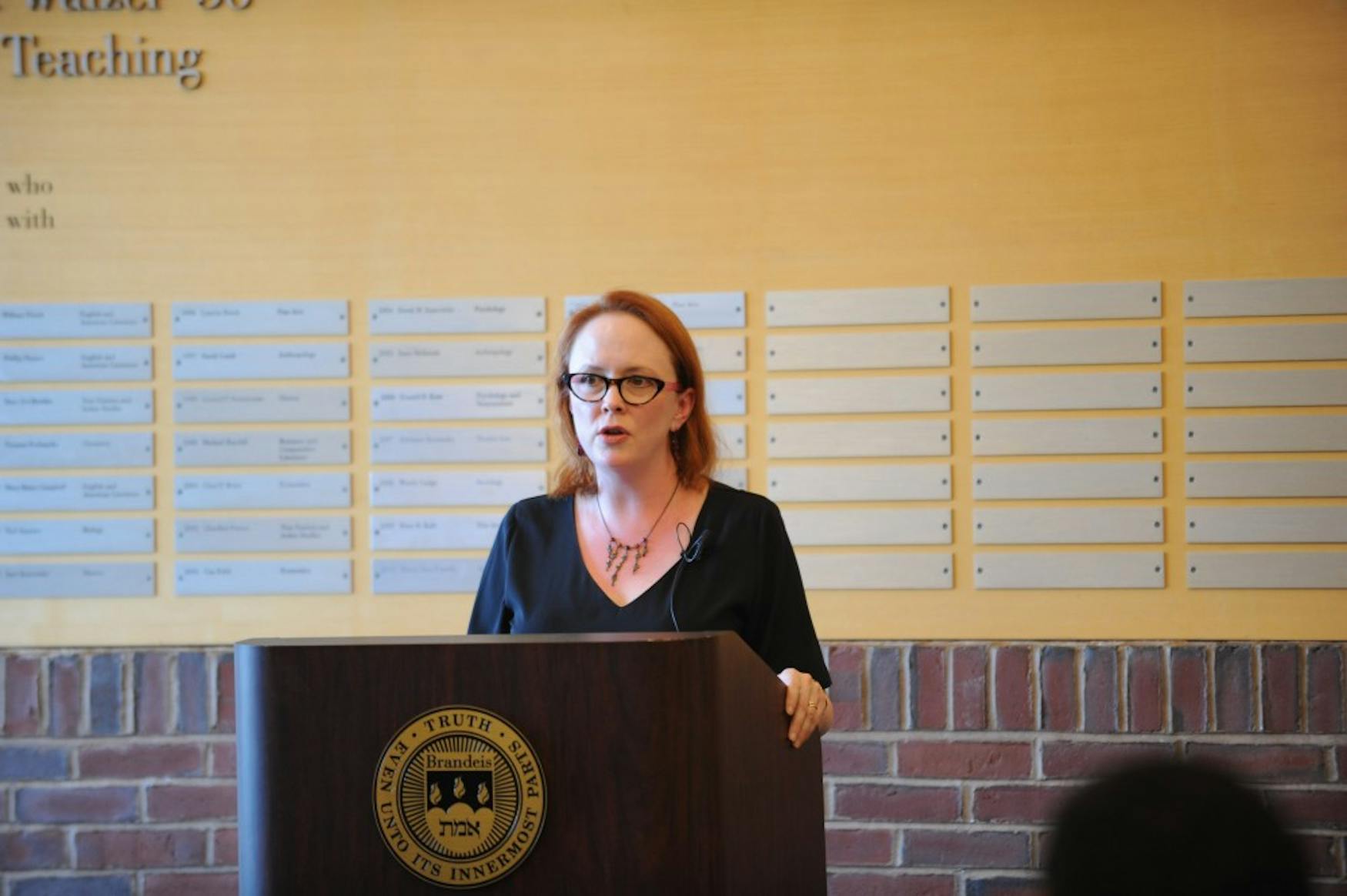Nehme speaks on film and Hollywood history
It is safe to say that most people love movies. But there are some people whose love for movies is something deeper, something that truly transforms their lives. Farran Smith Nehme, New York Post film critic, blogger and novelist, would call these people “cinephiles,” and she certainly identifies as one, as she explained to those who attended her lecture “Hollywood History, Hollywood Fiction” last Wednesday in the International Lounge.
Nehme’s journey from casual movie-viewer to cinephile is an interesting one, and a major focus of her lecture on the history of Hollywood and its realities. She grew up in Alabama, where the local television station would play movies on the public access channels. Sometimes, the movies would be great classics; other times, they were, well, terrible. But they had one thing in common: the movies shown on local television in Alabama several decades ago were all old, because that was what was cheap and a way to fill the air. Nehme described how she fell in love with old movies of all genres — the gorgeously choreographed musicals of Busby Berkeley, the early Technicolor melodramas she sobbed over with her mother and the classic Westerns she and her father watched together. Nehme became a cinephile, but her true passion was for old movies. When asked, however, Nehme could not quite put her love of old movies into words. She tried to explain: “There’s a part of me that thinks, ‘This is how movies are supposed to look.’”
There was something, Nehme said, about the classical studio aesthetic of black and white and of gorgeous, full-frame shots that just feel elegant and timeless. According to her, what we consider “good” film to look like is always adapting and changing, but there is a reason that certain movies, especially older movies, are always considered to be excellent, regardless of what year they may be. However, some of these classic movies are not in good shape, and that is what interests Nehme even more than classic cinematography, or the noir aesthetic that so many other cinephiles and film buffs might spend all their time talking about. Rather, it is preserving and “saving” some of these old films, many of which are already in bad quality or may have become lost before anyone cared. Nehme has a theory as to why so many old movies were left to fall into such poor quality: When cinema first took off in the early twentieth century, it was seen simply as a form of entertainment rather than an actual art, and people did not necessarily care about preserving movies for future viewers. By the time people started caring about film history, it was too late for some movies, and others that were still watchable were not good quality. Nehme does not let that bother her, however, because, as she believes, even an old film in bad shape is still a good movie, and it is important to see films in their original state. Just because technology was not as good or a film is not in perfect condition does not mean it is not worthy of viewing.
The concept of rediscovering previously lost movies actually drove Nehme to write her debut novel “Missing Reels,” a semi-autobiographical tale of a young woman on the hunt for a forgotten silent film. The novel combined her two passions: silent film and Hollywood history, a field that is actually very hard to research because, as Nehme put it, “Hollywood people are in the business of telling stories,” and it can often be hard to tell fact from fiction, even in an interview. Making up a movie and stars allowed her to be imaginative while still relying on historical research that might not be as reliable. More importantly, “Missing Reels” allowed her to explore the world of the silent movie, “the red-headed stepchild” of cinema, as Nehme described it.
Perhaps a line from “Missing Reels” that Nehme shared with the audience sums up her talk best. “We need lost movies. They fortify our love of cinema.” This is true, if Nehme’s passion is anything to go off of. Without the history of Hollywood and old films, even the ones that might not exist anymore, we cannot appreciate the movies we watch today.



Please note All comments are eligible for publication in The Justice.